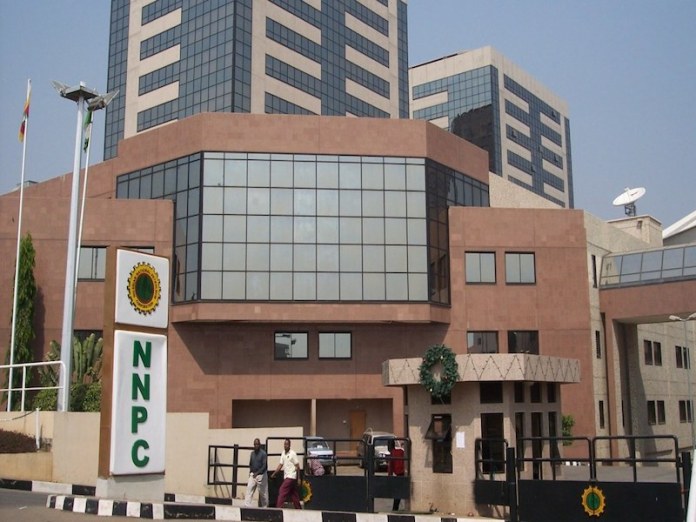- NNPC Targets 80 Percent Refining Capacity by 2018
The Nigerian National Petroleum Corporation (NNPC) said it plans to increase the capacity utilisation of its refineries to 60 per cent this year, and to 80 percent by the end of 2018, without giving further details.
Nigeria has five refineries in two in Port Harcourt, Warri, Kaduna and Ogbelle, with combined capacity of 446,000 barrels daily. Four these refineries (445,000bpd combined capacity) are operated by NNPC subsidiaries, while the Ogbelle, a 1,000-barrel capacity private diesel topping refinery in Rivers State is run by the Niger Delta Petroleum Resources, NDPR.
Data from industry regulator, Department of Petroleum Resources (DPR), indicate that all the refineries combined had worked at an average of 20 percent since 2010. Therefore, any increase in capacity will be a big boost for petroleum products availability, which importation is estimated at over N10 billion monthly.
The capacity increase will also permanently put an end to the burden petroleum subsidy, which though not provided in 2017 budget, which many fear will resurrect given the rising price of crude at the international oil market.
The Group Managing Director, NNPC, Dr. Maikanti Baru, said in a statement on Sunday, that the Corporation is keen on ending products importation in a few years, and that concrete plans are on ground to achieve this.
He said: “it is the procedure or methodology that we are changing a little bit, we are focusing on the process licensors to come and audit our processes and they have already started auditing most of our process units in the various refineries.
“We hope if we do all these systematically, we should be able to get about 60 per cent level of capacity utilisation by the end of this year or at worst by the first quarter of 2018 and get to 80 per cent by the end of 2018 so that we could locally be able to supply half of our Premium Motor Spirit (PMS) requirements.
“Also, with other efforts in terms of other refineries coming in place, we should be able to quit importation in a few years,” the GMD said.The pronouncement comes as the country recorded a total of 2,978 vandalised pipeline points between November 2015 and October 2016, prompting the Corporation to propose the establishment of a Security Advisory Council.
This is aimed at bringing a lasting solution to the perennial problem of pipeline vandalism and sundry security challenges bedeviling the oil and gas industry.
Baru noted that there was need to evolve new measures to bring an end to pipeline vandalism which is a major threat to the nation’s economy, and that the security advisory council would involve critical stakeholders, including security agencies, community leaders from the Niger Delta, as well as IOCs, with a view to addressing all security and host community agitations.
“We want to passionately appeal to those behind indiscriminate acts of infrastructure vandalism to put an end forthwith to these despicable acts which are a great threat to the economy, the eco-system and energy security of the country,” the NNPC boss stated.
He explained that since coming on board, he has ensured that the NNPC was run as what he called “a FACTI-based corporation, meaning a Focused,Accountable, Competitive and Transparent organisation that conducts its business with Integrity.”
Stressing the need to be self-sufficient in petroleum refining, the National President of the Independent Petroleum Marketers Association of Nigeria (IPMAN), Chinedu Okorokwo, urged the Federal Government to work towards refining more of its crude oil rather than export.
This, he said, remained the only way to stem the effects of declining crude oil prices on the Nigerian economy.Okoronkwo said that the decline of price of crude oil at the international marketer should not bother Nigerians, adding that local refining would cushion other expenses and boost Gross Domestic Products (GDP).
Ecobank Head of Energy Research, Dolapo Oni, said: “Some of our buyers today will have self-sufficiency in crude or need lesser amounts from us and we’ll need to find new markets again; pretty much like what the U.S. did to us in 2010.
“We need to plan ahead for these eventualities and diversify away from oil exports. We can increase value production by more domestic refining and petrochemicals extraction from crude. We can also develop ways to channel earnings from crude oil into other vital areas of the economy in a more direct way.”

 Billionaire Watch3 weeks ago
Billionaire Watch3 weeks ago
 Startups4 weeks ago
Startups4 weeks ago
 News4 weeks ago
News4 weeks ago
 News4 weeks ago
News4 weeks ago
 Bitcoin4 weeks ago
Bitcoin4 weeks ago
 Naira4 weeks ago
Naira4 weeks ago
 Forex3 weeks ago
Forex3 weeks ago
 Treasury Bills4 weeks ago
Treasury Bills4 weeks ago

























